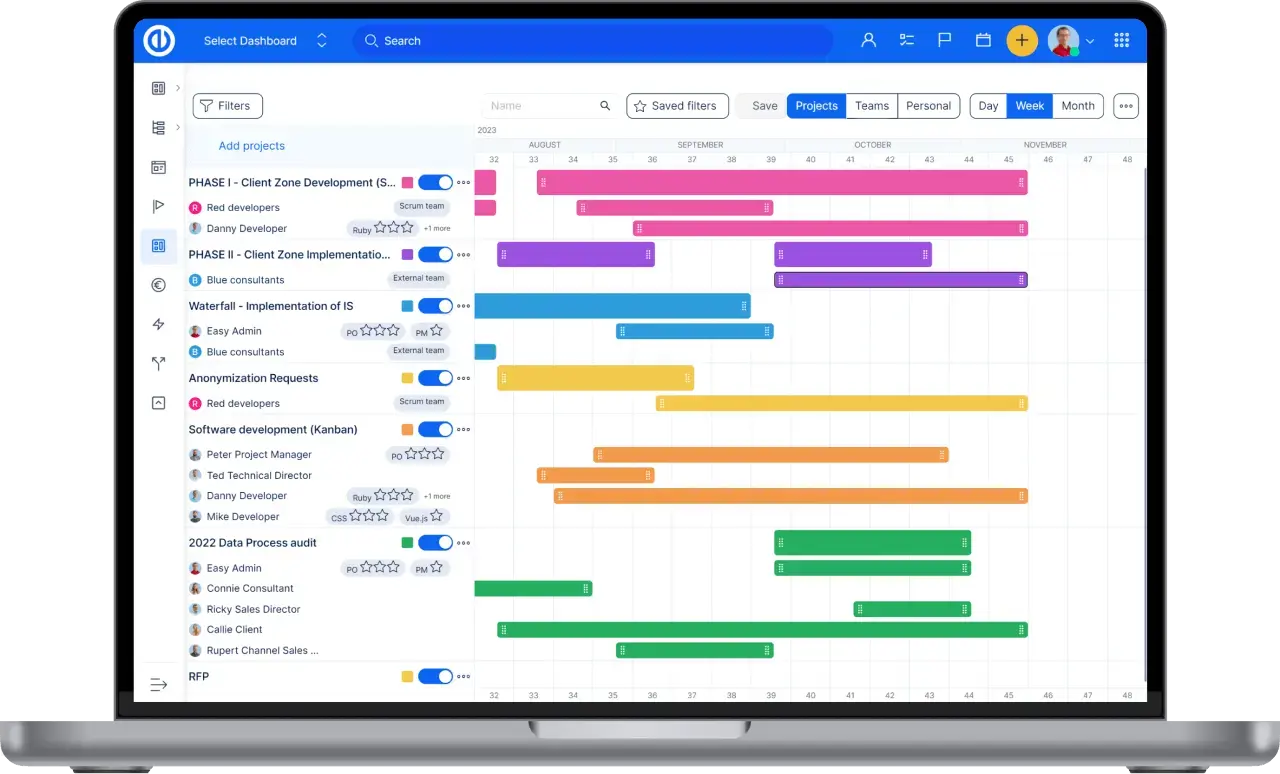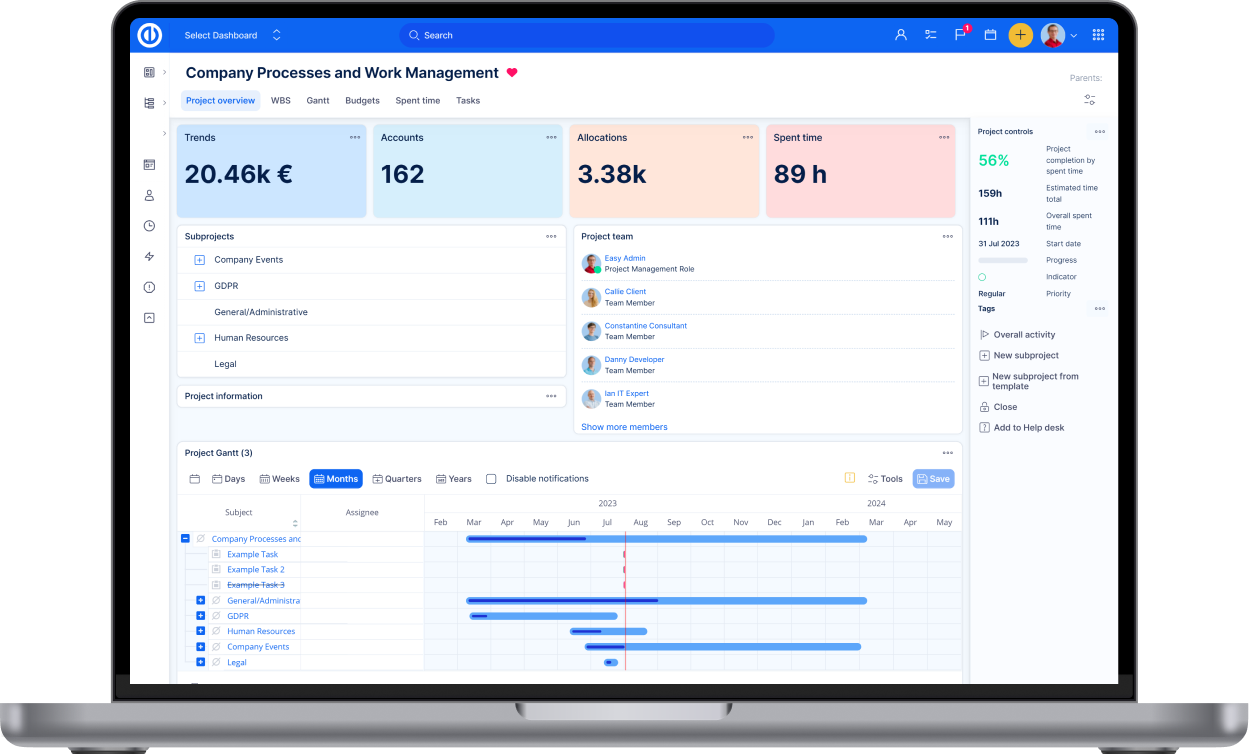How to Build Trust in a Remote PM Team

Trust may be lost through uncertainty. Leaders must define expectations for remote staff, ranging from how frequently to check in to using a virtual or phone message. You may use this guide to illustrate your company's stance toward remote work to potential workers. Changing your company's handbook is all it takes.
In this context, you can read about the most significant trends in project management, which come from a survey of 115 international managers. You can gain inspiration for managing your own projects. So, here are a few promised suggestions.
Invest in Your Employees' Health
Developing a trusting workplace environment may need patience and compassion while working remotely for some individuals. It's important to remember that firms must flourish to meet demand. Examine the different benefits available to help employees cope.
Employers should be aware of the many types of leave and workplace adjustments to balance corporate and employee needs and effectively negotiate the new virtual office demands in terms of agility, adaptive leadership, and empathy for people and their well-being. To build a culture of trust among your employees, show them that you regard them as people, not just as workers.
Dialogue Transparency
To work effectively remotely, remote teams must have mutual trust, which you can only build via regular contact. Communication skills training is required to build trust in a distant work setting. Setting a regular check-in time or posting in the team chat to let others know when you'll be back online are just a few communication tactics you might utilize. Also, state how you plan to evaluate your work.
Set clear objectives, use standard performance measures, and be consistent in how you recognize and reward employee accomplishment. Open and regular communication is crucial in a remote working environment, even if employees already trust one other. In a recent Bamboo HR survey, remote workers meet with their direct supervisors less often since COVID-19, but those who meet more frequently are more likely to progress.
Make Yourself Vulnerable
Since we are social animals, human warmth rather than competence fosters trust in others. Making extra efforts to connect with people might help build trust in a distant work environment. To keep trust, we must be able to tolerate one other's flaws and recognize our common humanity while maintaining high work standards.
Micromanage Your Team
Working remotely necessitates constant communication about projects and upcoming activities. Workers may mistrust management if they perceive they are constantly observed, even when and where they work. To develop trust in remote work environments, companies must empower employees, hold them accountable for their job, and encourage them to focus.
You can also use any project management tool to keep track of the work and make charts, reports, etc. Professional services such as project management implementation, technical support, webinars, and online training are available on Easy Project so that you can use that!
Address Management Preconceptions About Remote Employment
Remote employees worry about being overlooked for promotions since they can't meet with corporate officials in person. Even when evidence showed that remote employees were more likely to be high achievers, most managers still evaluated their performance lower than in-person employees.
Train managers to recognize their own unconscious biases to build a fair system that employees trust. Aim for objectivity in performance evaluation and promotion criteria to avoid penalizing remote workers. It's also critical to foster one-on-one or small-group conversations between remote workers and leaders inside and beyond their chain of command.
Facilitate The Formation Of Interpersonal Connections
Trust builds when team members feel like they belong. This is impossible with e-mail and Zoom meetings. Transparency is enhanced by revealing company-wide achievements or important occurrences. Businesses will benefit from developing a sense of community, but they will also retain the finest staff!
Outputs Drive Measurement
Don't judge your employees' performance by how active they are on company chat or how fast they respond to e-mails. Examine their real output. Using this strategy, an employee's job is rated on the product rather than their looks. Focus on getting the task done to build trust between remote employees and their managers.
Allow Yourself Time To Socialise Outside Of Work
Leading teams in a distributed and remote environment bring unique challenges. Building reliable connections among team members based on transparency and vulnerability have become increasingly challenging. We sought to recreate the informal and spontaneous connections that used to happen in the corridors and conference rooms. Leaders must be more intentional in setting out time and space for their teams and selecting conversation topics. Knowing and respecting your teammates' personalities is a powerful asset rather than just their occupations. A personal story may connect two people quickly.
Want Any Help?
WBS, Gantt, SCRUM, Kanban, and other best PM techniques are all included within Easy Project. There are modules for resources, finances, HelpDesk, B2B CRM, and the DevOps toolset available for it to use – so go and check it out ASAP!

All-in-one software for a modern project manager? Easy.
Get all powerful tools for perfect project planning, management, and control in one software.
